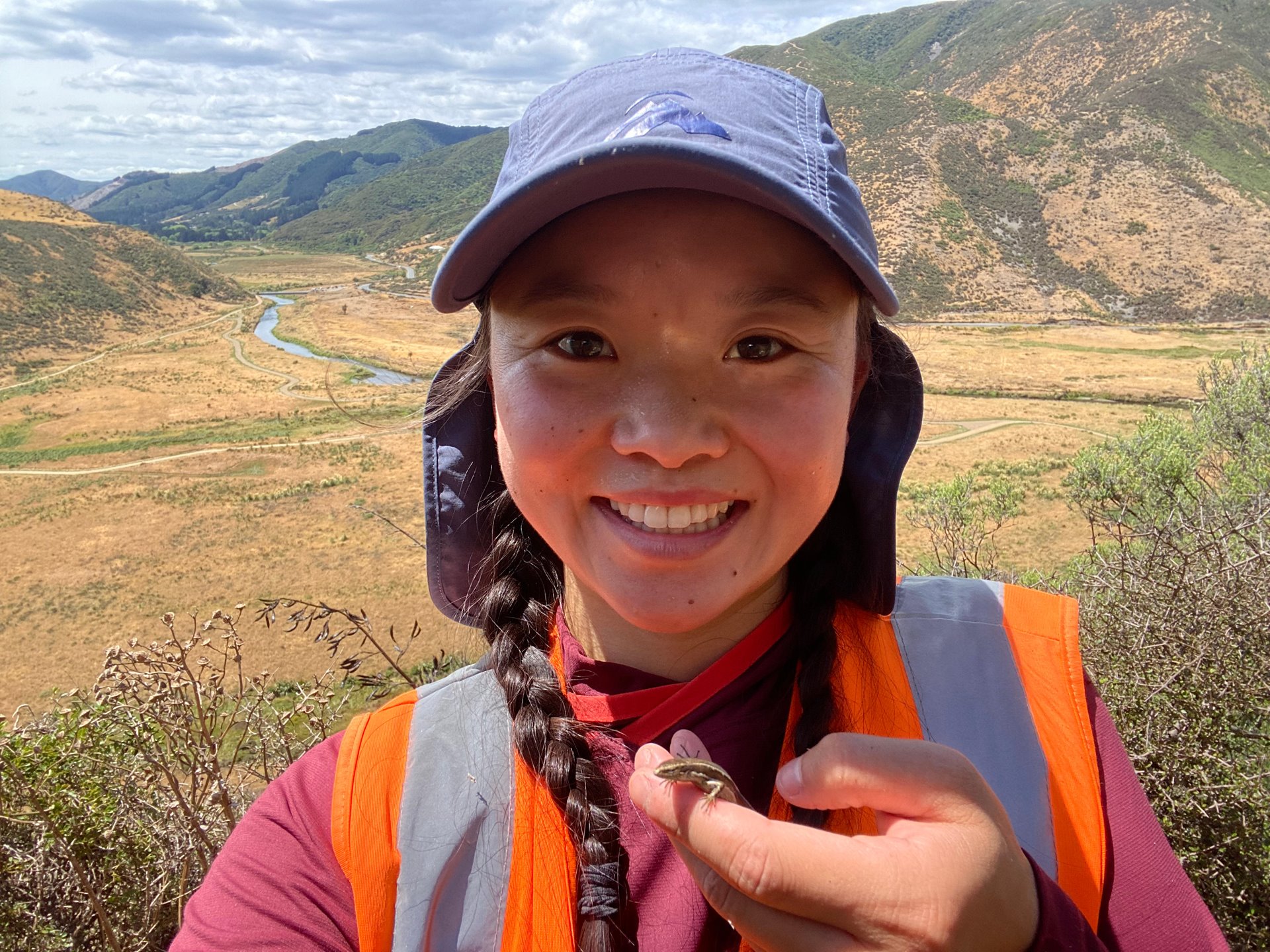As part of a series of stories profiling people of influence from around Beca, we asked Ecologist Sandy Huang to tell us about her career journey and life outside of work.
Tell us how you became an ecologist. How did you decide what to study?
Like many other ecologists, I actually started off with veterinary science in university, but then realised that it wasn’t quite the right fit. Fortunately, one of my core papers included an ecology component, which quickly became the highlight of my studies. At the time, I didn’t focus on a specific career path – I simply continued taking courses that I enjoyed, until I eventually ended up doing a masters in ecology.
Before joining Beca, I had worked as a field ecologist doing pest management and tree planting, undertaking forest surveys, and leading conservation volunteer programmes.
What is your work like, day to day?
Most of the work done by the Beca Ecology team is related to resource consents and management, with clients typically being local government organisations. As a terrestrial ecologist, my focus is primarily on plants, wetlands, and lizards. I especially enjoy working with lizards, as I find them incredibly fascinating and cute!
The small size of Beca’s Ecology team is a big advantage, as I get to do a little bit of everything. The variety keeps my day-to-day work interesting – and busy! I might be attending client meetings on Monday, then fly to Palmerston North for a bat survey on Tuesday, before returning to Auckland for a stream survey on Wednesday.
I love the balance of being able to spend time outdoors doing fieldwork as well as time in the office reporting. Spring and summer are our busiest seasons, and we’re in the field almost every day.
What does lizard monitoring involve? How do you get close to them?
When you see photos of ecologists doing lizard monitoring, you see us holding a lizard in a beautiful location. It might look glamorous, but the reality is, it’s actually very intensive work.
Lizard monitoring involves setting up numerous traps or refuges that can be heavy and bulky, and then repeatedly checking them over several weeks. Lizards can hide in long grass and shrubs in thick forests; between rock crevices in the mountains; and sometimes under rubbish in urban areas. So, you might find yourself wading through thorny blackberry and gorse, or climbing a steep hill for hours to find these tiny creatures – all while carrying heavy equipment.
While lizard monitoring has been one of the physically demanding types of work that I’ve done at Beca, it has also been one of the most rewarding. A standout moment was when I helped to discover a new population of Pallid Skinks in Queenstown (the seventh known population in New Zealand)!
What were you like as a child? What did you want to be?
I’ve always been passionate about nature, but I thought the only career options were becoming a vet or a zookeeper. I’m glad I found my way into ecology, as it allows me to work with plants and animals in their natural habitats.
When I was little, I briefly considered becoming a librarian because I love reading. I quickly dismissed that idea when I found out that librarians are not paid to read all day!
What do you like doing in your spare time?
I love being outdoors and have been an avid rock climber since university. Interestingly, many rock-climbing spots in New Zealand are also hotspots for lizards. I also enjoy snowboarding and hiking, although I don’t hike as much anymore as I get plenty of steps from my job.
Is there any advice you’d give to others who are interested in a similar career path?
My top three pieces of advice for those interested in ecology are to:
1. Volunteer. This is an excellent way to gain hands-on experience, as well as determine whether you would actually enjoy being an ecologist.
2. Develop your communication and people skills. While many are drawn to ecology so that they can escape into the wilderness and avoid people, the work is actually surprisingly people orientated. The success of your projects is often reliant on good teamwork, as well as your ability to effectively communicate technical expertise to non-ecologists.
3. Embrace being dirty. Fieldwork is a core part of being an ecologist, and there will be days where you get absolutely covered in rain, mud, sweat, and other unidentifiable grime. So it’s best to just embrace the experience and enjoy the adventure, as it’s all part of the job.
 Sandy Huang on a lizard monitoring project in Wellington.
Sandy Huang on a lizard monitoring project in Wellington.